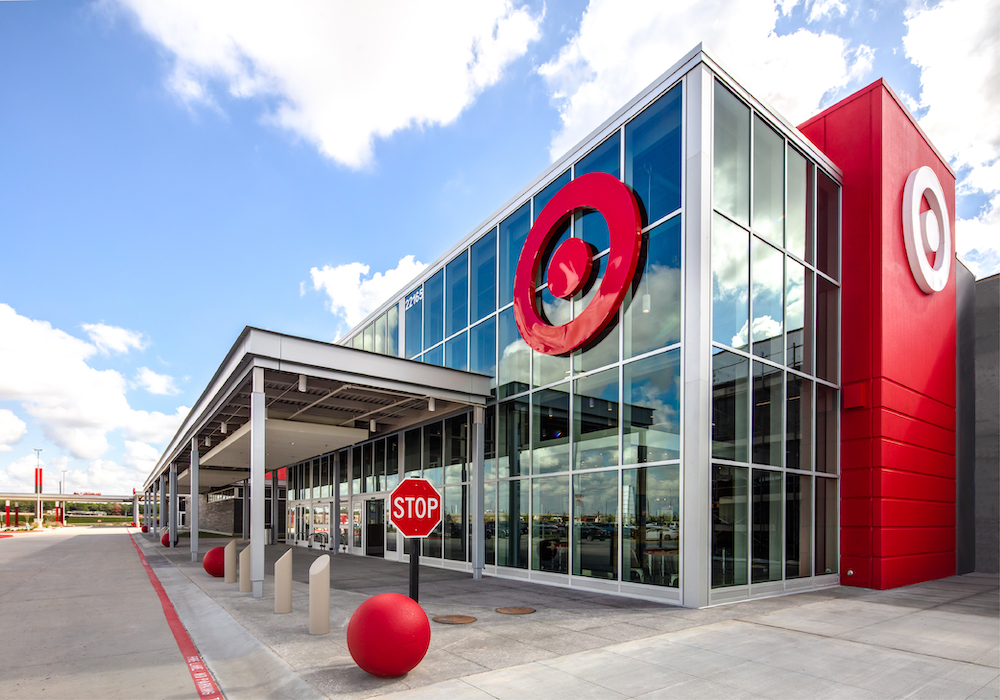Back in its second-quarter earnings report in August, Target (TGT 2.81%) gave investors hope that it was finally turning the corner.
Since the pandemic began to wind down, the retailer has struggled with inflation, weak consumer discretionary spending, and an increase in theft. However, Target’s shares plunged on Wednesday after its latest update indicated that the recovery trend didn’t last, and the company is still struggling on both sides of the income statement.
Comparable sales rose 0.3% in the quarter as traffic was up 2.4%, but its average transaction fell. The company’s sales shifted to the digital channel, with digital comps up 10.8%, but in-store comparable sales fell 1.9%.
Overall revenue rose 1.1% to $25.7 billion, which missed the consensus of $25.9 billion. The retailer continued to face margin pressure as gross margin fell from 27.4% to 27.2%, due to higher inventory levels and increased fulfillment and supply chain costs. Management stocked up on and rerouted inventory ahead of the October port strike, which should be a one-time headwind.
Higher wages and benefits led to an increase in selling, general, and administrative expenses from 20.9% to 21.4%; as a result, operating margin fell from 5.2% to 4.6%. That led to a decline in earnings per share (EPS) from $2.10 to $1.85, which badly missed estimates of $2.30.
Target also offered disappointing guidance for the key holiday quarter: It sees flat comparable sales growth and earnings per share of $1.85 to $2.45, which was well below the consensus of $2.64. It also cut its full-year EPS guidance from $9.00-$9.70 to $8.30-$8.90.
Image source: Target.
What’s ailing Target
The company trotted out familiar excuses. Management said that “We encountered some unique challenges and cost pressures that impacted our bottom-line performance”; on the earnings call, it said that consumers are continuing to be selective about spending, and patiently waiting for deals. However, Target’s struggles came as rival Walmart continued to dominate.
Walmart captured comparable-sales growth of 5% in its third quarter at U.S. stores, driven by its core grocery business. It trimmed inventory in the third quarter and was able to increase gross margin, driving overall profitability. Walmart also reported mid-single-digit deflation in its general merchandise category, showing that it’s lowering prices across its product range. And it called out market-share gains across all income cohorts, a sign that it’s taking market share from Target, among other retailers.
Target did have some bright spots, including 6% comparable-sales growth in beauty, and double-digit growth in Drive Up and same-day delivery. But overall, inventory challenges, consumer sluggishness, and competitive weakness continued to weigh on the business.
Can Target bounce back?
While Target stock deserves to be down sharply on the news and had fallen 21% as of early Wednesday afternoon, there are some reasons it could bounce back sooner than you think. Target has a lot of operating leverage in its business model, and a modest improvement in gross margin can lead to a surge in operating profits.
First, better inventory management might have enabled the company to expand gross margin to 29%, an improvement of 180 basis points. Those gains would flow directly down to operating margin, which was just 4.6%. If its operating margin was instead 6.4% — 180 basis points higher, and within Target’s historical guidance for an operating margin of at least 6% — operating income would have jumped 39%, a huge difference. Getting there isn’t as hard as it looks, especially as management expects categories that have been under pressure, like home, to eventually recover.
Second, shares are cheap compared to those of peers like Walmart: Target now trades at a price-to-earnings (P/E) ratio of 14 based on this year’s EPS estimates. Of course, the company needs to make some fundamental improvements before investors can capitalize on the discounted valuation, but the opportunity is there.
After the third-quarter update, however, a recovery in the stock looks even further away.

